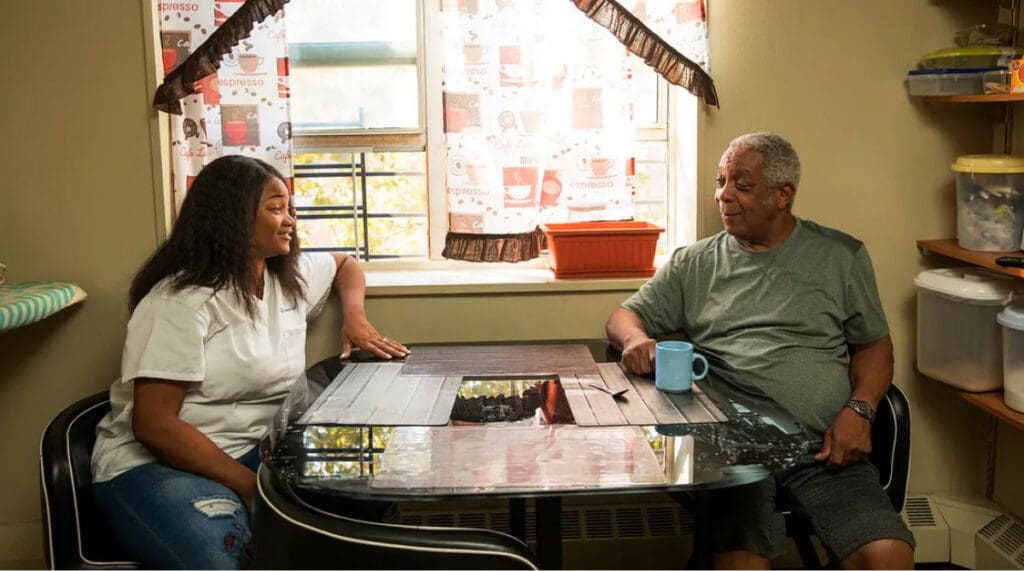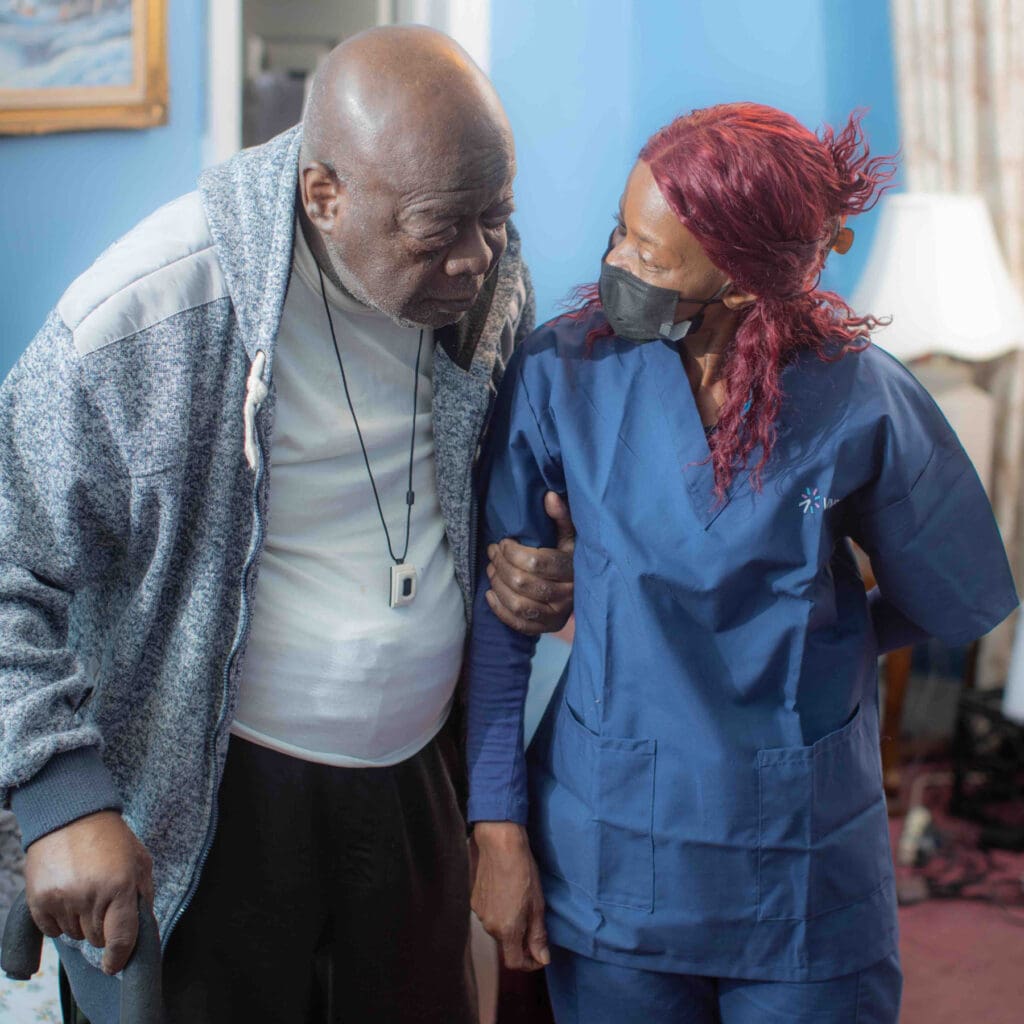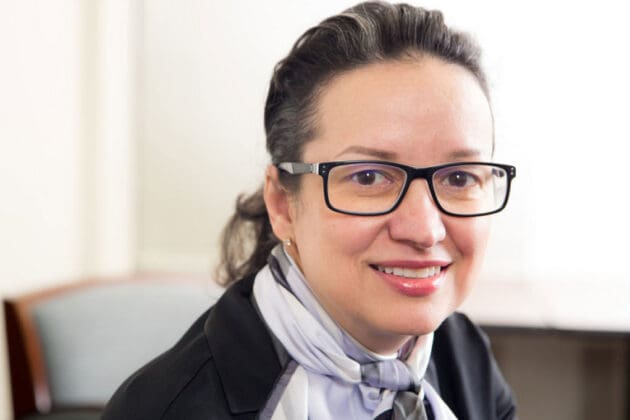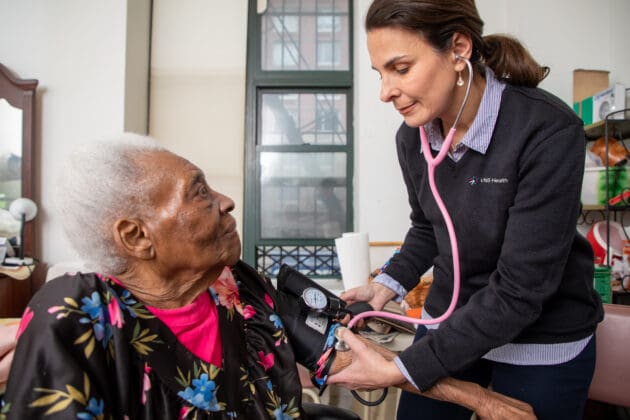
Recently, a colleague told me about attending an annual doctor’s visit with her 87-year-old mother, Marguerite (The mother’s name has been changed for privacy). Her mom is still physically healthy and quite physically active, but in the last year she has started to show signs of increasing confusion. Amid findings consistent with dementia as well as a family history of the condition, the doctor, while compassionate and skilled, could provide little in the way of medical care. “I wish I could offer more,” he said. “Families all just do what they can.”
Helping a loved one with dementia is one of the defining and most difficult caregiving challenges of our era. The Alzheimer’s Association estimates that 6.7 million Americans are currently living with Alzheimer’s, the most common (though far from the only) form of dementia. Barring significant medical and scientific advancements, that number is projected to double, to 13.8 million, by 2060. The burden of caring for this population falls heavily on unpaid family caregivers, who in 2022 spent some 18 billion hours caring for a loved one with dementia.
These staggering numbers render dementia caregiving both a population-level health concern and one that plays out in the most individual, intimate and isolating ways. It means dealing with the hundredth time your mother looks for her keys, even though she no longer drives; the increasingly vague look from a spouse who used to hold court over dinner; or a father’s uncertainty about his whereabouts in a town he’s lived in for half a century. It is living with a loved one’s daily draining away of familiarity, not recognizing a favorite neighborhood spot, one’s own kitchen, an old friend, a grandchild, and, eventually, you yourself, the one who is providing everyday care to keep your loved one safe and as healthy as possible at home.
Studies show that caregivers of people with dementia are more likely to experience depression and anxiety, compared to caregivers for people with other conditions. While it has many things in common with caregiving for an aging loved one with any chronic condition, dementia caregiving poses additional challenges. People often live many years with dementia and remain in relatively sound physical health as their mental health declines, which can be particularly frustrating for loved ones (and for the patients themselves), as well as costly and logistically overwhelming. Dementia caregiving can also be especially lonely, with caregivers facing the double burden of tending to a diminished loved one without the comfort and companionship of that loved one as they slip away mentally.
Combining Timeless and Timely Care

At VNS Health, the nonprofit where I work, we’ve been providing care that addresses these issues for more than a century, delivered by people who are compassionate, well-trained and follow a plan of care in close communication with the care team. Home health aides (HHAs) are considered the “eyes and ears” of our teams because they are in the home every day. They know the needs and norms of the person they are caring for, and can often detect if something unusual occurs before anyone else.
This year, we’ve augmented this timeless care with a new Dementia Care at Home program designed to put the right people in the right place with the right training and oversight to deliver individualized care and companionship for people living with dementia. Nationally, about one third of all home health care patients have some degree of dementia, so this program is particularly timely. At the heart of the program are HHAs specially trained in dementia care, who know how to keep their clients engaged, stimulated and stable through the day. This includes aides like Sylvie, who took our dementia training this spring and has learned strategies especially useful for when her client is acting out. “I talk to her very nicely and let her know that I am somebody who is always there for her,” says Sylvie. “I know because of my training that what she is saying and doing is not from her heart — that the dementia is making her mind say and do those things.”
Caring for the Caregivers
We are also leading the way in caring for informal family caregivers of dementia patients, a burgeoning population that we know needs special attention. The needs, challenges and potential adverse health effects of caregiving are well documented, and caregiver support is something that is an increasingly essential part of our health care system. The Center for Home Care Policy & Research at VNS Health is developing an intervention that will enable these dementia caregivers to better communicate their needs to the home health team — which the team then can then, in turn, connect the caregiver to the specific training, resources, and education that they need.
“Family caregivers are critically important to delivering high-quality home care, particularly in the context of dementia — yet right now, there’s no systematic way to assess their needs,” says the project’s principal investigator, Julia Burgdorf, a research scientist at VNS Health’s Research Center and a faculty associate at Johns Hopkins Bloomberg School of Public Health.
This self-assessment tool, called DECLARE (Dementia Caregivers’ Link to Assistance and Resources), grew out of Dr. Burgdorf’s research that showed: a) many dementia caregivers report that their needs are unmet; and b) unmet caregiver needs can double their loved one’s risk of hospitalization and lead to lower satisfaction rates and higher home care costs due to additional visits. Our intervention, we hope, will help change that equation.
VNS Health’s Research Center is uniquely positioned to study dementia care because of our large volume of patients and our emphasis on evidence-based outcomes. In another example of their cutting-edge work, VNS Health clinical researcher Maryam Zolnoori, an assistant professor at Columbia School of Nursing, is developing an AI tool to look for changes in acoustic and linguistic parts of speech and use these findings to detect dementia earlier, monitor its progression, which could ultimately lead to more timely interventions and better outcomes.
I return to my colleague who is at the outset of her journey caring for a mother with dementia. For her and the millions of families like hers, our clarion call is urgent: we must create home health care solutions for dementia patients that are simple to understand, easy to access and lead to meaningful outcomes. We must move forward on a population-health level, with innovations like DECLARE and special training programs, to make a large-scale impact, while also meeting patients and families where they are on the most personal level. I think of Sylvie, the home health aide, sparking moments of calmness and joy for her client by brushing her hair and speaking with her in their common native language. “She smiles and laughs,” says Sylvie. And for a moment, all is well.


